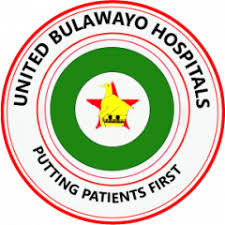
BY STAFF REPORTER
PRESIDENT Emmerson Mnangagwa undermined the National Peace and Reconciliation Commission (NPRC) by setting a parallel structure with traditional chiefs from the Matabeleland region in trying to resolve the emotive Gukurahundi issue, a top human rights lawyer warned.
National Transitional Justice Working Group (NTJWG) chairperson Alec Muchadehama said the NPRC, an independent commission, should be the one seized with the work of resolving past human rights violations.
Muchadehama was speaking during a constitutional symposium organised by the Zimbabwe Human Rights NGO Forum (The Forum) in Mutare on Thursday.
The Zimbabwe Human Rights Commission (ZHRC) and the Zimbabwe Media Commission attended the symposium.
“We were worried when chiefs in Matabeleland appeared to be collaborating with the president trying to deal with the issue of Gukuruhundi to the exclusion of the National Peace and Reconciliation Commission when in our view, the NPRC is the first port of call when it comes with compressively dealing with the issue of past violations,” Muchadehama said.
“Those are the issues we closely watch.”
Mnangagwa, soon after coming into power at the back of a coup in 2017, promised to deal with the Gukuruhundi issue, which has remained unresolved for the past three decades.
- Chamisa under fire over US$120K donation
- Mavhunga puts DeMbare into Chibuku quarterfinals
- Pension funds bet on Cabora Bassa oilfields
- Councils defy govt fire tender directive
Keep Reading
He promised to open dialogue on the 1980s massacres on people from Midlands and Matabeleland regions by the late former president Robert Mugabe’s North Korea-trained Fifth Brigade.
According to the Catholic Commission for Justice and Peace in Zimbabwe (CCJPZ), over 20000 people were killed between 1982 and 87.
Mnangagwa has met traditional leaders in Matabeleland and Midlands as well as civic organisations over the Gukuruhundi issue, but critics said an independent commission should be left to do the job because the president, who was State Security minister by the time of the killings, was a conflicted person.
Reverend Ray Motsi, addressing delegates at a virtual transitional justice stakeholder meeting hosted by the NTJWG, echoed Muchadehama’s sentiments, saying Mnangagwa’s involvement was tantamount to political interference in the process.
Motsi said an independent commission should be allowed to do its work, warning Mnangagwa’s involvement would give undue pressure on the commission to try to resolve the issue in the manner the president wants.
Muchadehama, in his presentation made on the eve of the International Human Rights Day, commemorated every year on December 10, challenged independent commissions to investigate allegations of abuse of human rights by the state.
He said the country was witnessing the weaponisation of the criminal justice system by the state as a way of dealing with political enemies and perceived malcontents.
“The issue of human rights violations, characterised by brutal arrests, the use of lawfare, is not being said,” Muchadehama said.
“I know the independent commissions are doing a lot of work, but I think some of the things you can do is to come to the courts, come to court number 14 at the Harare magistrate’s courts and see the chaos that is happening, to see the type of cases that are being taken to court, whether the cases are some form of political gamesmanship at play at the Harare magistrate court.
“Take time to go to Harare Central Police Station to see what will be happening when there are these mass arrests, like what happened in January 2019.
“Go to Chikurubi Maximum Security Prison, after these arrests and see what will be happening.
“I know you have the authority by virtue of being independent commissions.
“There will be fundamental issues of breach of human rights by the system, which you can investigate as independent commissions.”
He said the issue of transitional justice, which was being relegated due to the economic situation in the country and other pressing issues, had become the major preoccupation of the NTJWG which has set out as its mandate to resolve past human violations.
“We cannot ignore dealing with past human rights violations because unfortunately as a country, we have lost many opportunities to resolve past violations, particularly when the new constitution was adopted in 2013.”
He, however, decried political interference and the poor funding of independent commissions for their failure to fulfil their mandates.
“I recall some time back when the Zimbabwe Human Rights Commission wrote a report that was not favourable to the system, there was some kind of push back,” Muchadehama added.










